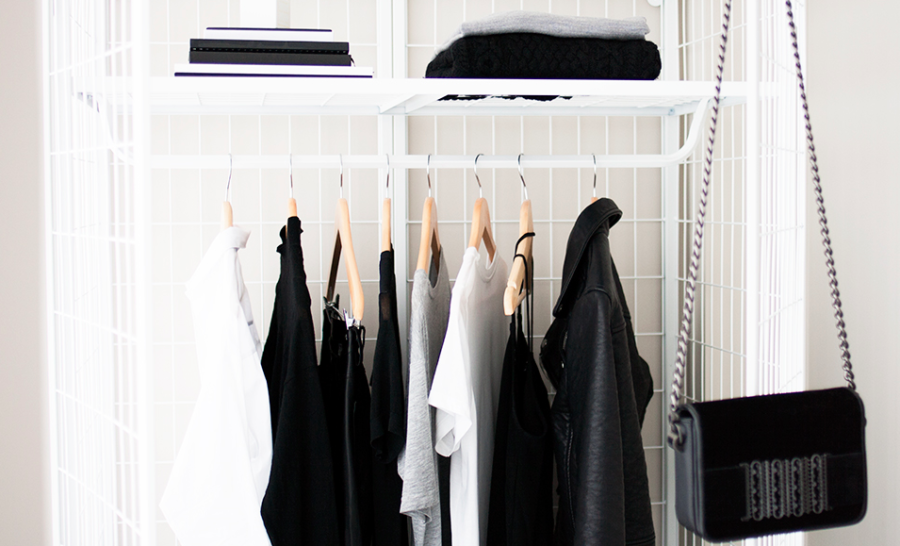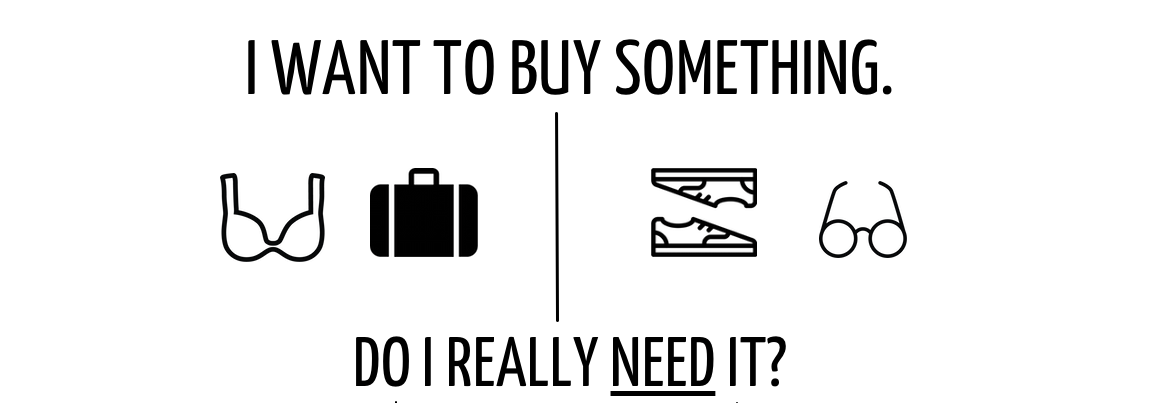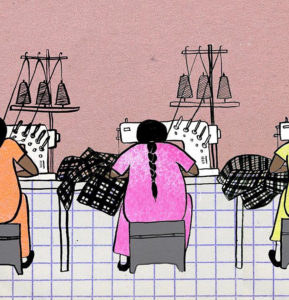It hit me recently that I’ve been covering ethical brands a lot and spending a good chunk of my time developing an ethical fashion shopping list. The more I write about ethical fashion, the more you’ve been asking for this type of resource. And while I don’t want to discredit this work, I fear I’ve been remiss in skipping the most important part of ethical shopping – the purchase decision process.
So, I’m taking a step back to heed a warning: buying from the brands I cover when you don’t need clothes – or worse, when you won’t actually wear them – defeats the purpose of ethical fashion.
Ethical brands exist for when our closets are void of something, not for when we feel like shopping as a pastime. I’m not saying clothes should be bland and uniform, quite the contrary actually. Clothes should make us feel like the best version of ourselves, as long as our ‘selves’ don’t have multiple personality disorder.
This reality hit me in the face the other day when I saw a teenage girl wearing this Reformation dress. She looked stunning, but that’s aside the point. She was much younger than the brand’s typical customer, especially considering Reformation’s high prices. This made me wonder if ethical brands are being treated as trendy now. Did her one-time good intentions lead her to search for ‘eco fashion’ in Google and, as a result, she gets bombarded by retargeting ads? Is she stockpiling Reformation clothes now?
I could have sized up the situation wrong, but either way, I see it as a sign to exercise caution. My fear is that this idea of ‘too much stuff’ will infiltrate ethical fashion. And, even worse, that my work covering brands will contribute to consumers treating them like fast fashion. This seriously keeps me up at night.
Here’s the lesson: If you want to be a more thoughtful consumer of fashion the biggest step you can take is to resist buying all together.
A better decision making process can help with this. But it’s a really nuanced thing to: (1) resist desire, and (2) to figure out which items fit your personal style, budget and standards. I’ve put together this list of questions that can help you decide when to shop, and when to not.
Instructions: Save or print this before your next purchase. Fill in the blanks and adapt the questions to your goals. Consider your answers before buying. You don’t need to meet any particular score; the questions are simply designed to get you thinking about your own standards.

Personal Style
What do I love most about this garment?
___________________________
Will I want to wear this in 3-5 years?
Yes No
What message do I want to send with my clothing? Will this garment do it?
___________________________; Yes No
Will this match at least ___ number of items already in my closet?
Yes No
Have I taken a picture of myself in this outfit?
Yes No
Personal Investment
Is this something I will wear more than ___ times? [If you’re just starting, aim for at least 20 wears, if you’re seasoned, 50+]
Yes No
Have I considered this purchase for at least ___ days/weeks/months?
Yes No
Will these fabrics hold up to my lifestyle and the weather conditions where I live?
Yes No
Have I taken inventory of my current wardrobe to see if I already have something similar?
Yes No
Am I buying this item because it’s on sale or cheap?
Yes No
Does the garment require special care? Do I have the means to maintain its condition?
Yes No
Are any outside influences involved in my purchase decision? [Were you pressured by commissioned sales reps? Friends? Or influenced by celebrity culture?]
Yes No
Ethical Standards
Have I researched this brand’s ethical practices? [Use the first three resources on my shopping page]
Yes No
Does this brand champion one or more causes that are important to me? [e.g. veganism, human rights, fair trade, made in USA]
Yes No
Does this brand communicate openly and transparently with its customers?
Yes No
Is this garment made from sustainable textiles? [Look for natural (not petrochemical based), organic and biodegradable fibers. Tencel/Lycocell, hemp, modal, and Alpaca are generally good. Polyester, viscose/rayon and nylon are generally bad. Read The Note Passer’s Textile Issue to learn more]
Yes No
Can I easily find out where this garment was manufactured?
Yes No
Does this brand issue a public sustainability and/or social responsibility report?
Yes No
Has this brand ever been in the news for human rights violations?
Yes No
Does this brand use greenwashing in its marketing? [look for eco-friendly imagery or language that isn’t substantiated by third-party endorsements like fair-trade or organic labels]
Yes No
Other notes:
_____________________________________________
Ask me more style questions on twitter @PeahenBlog with #SlowDownMyClothes.
Here are more resources from the ethical blogger community:
Learning to live with less via The Art of Simple.
If you’re really committed, use Un-fancy’s guide to build a capsule wardrobe.
Photo credits:
Feature image – The Note Passer
Image within – NOA // NOIR




